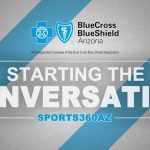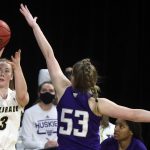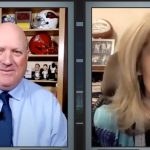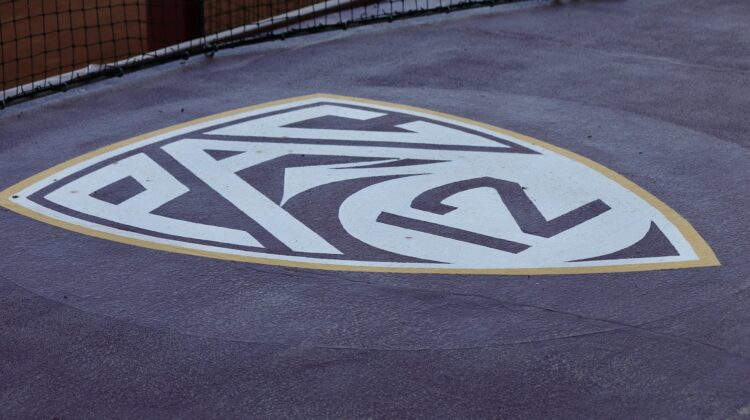The conference is facing a series of legal challenges
Washington State and Oregon State have taken legal action against the Pac-12 to determine control of the assets in a conference that will have two remaining members as of next summer.
But with assets come liabilities, and the Pac-12 is involved in numerous lawsuits — some the result of its own missteps, some due to its status as a Power Five conference.
Here’s a look at the other legal challenges.
AB 252
Background: Assembly bill 252, the College Athlete Protection Act, is winding through the California legislature, the same body that produced the Name, Image and Likeness law that changed college sports. Sponsored by Chris Holden, a former San Diego State baseball player who represents the 41st district, AB 252 aims to create a revenue-sharing relationship between the schools and athletes in which tens of millions of dollars in athletic department revenue potentially could be diverted into so-called “degree completion funds” for the athletes.
Status: AB 252 passed the assembly in the late spring but is on hold until 2024 as Holden considers amendments.
Impact: If athletic departments are forced to redirect millions from their budgets to the athletes — much of it to football and men’s basketball players — then dozens of Olympic sports could be in jeopardy. For that reason, AB 252 carries significant Title IX concerns.
The Comcast mess
Background: The conference has been sued by former Pac-12 Networks president Mark Shuken and CFO Brent Willman, who believe they were wrongfully terminated (in January) for their roles in the Comcast overpayment scandal. Shuken and Willman were made aware of the $5 million (approximate) annual overpayments by Comcast to the Pac-12 Networks in 2017 but claim they met their fiduciary responsibility by telling then-commissioner Larry Scott.
Status: Shuken and Willman filed their complaint in April in San Francisco Superior Court and retained a well-regarded firm, Cotchett, Pitre and McCarthy LLP. The process is expected to take months, at least.
Impact: The plaintiffs are seeking damages “in amounts to be established at trial and believed to be in excess of $2 million,” according to the complaint.
The DISH case
Background: The conference has taken DISH Network to court for withholding distribution payments and violating the terms of its agreement with the Pac-12 Networks. The source of the dispute? The COVID-shortened 2020 football season, in which the networks were unable to meet contractual requirements to distributors. Unlike the other partners, DISH is attempting to use COVID to justify withholding payments for additional years.
Status: The suit was filed in October in Colorado — DISH is based in the Denver suburb of Englewood — and is believed to be ongoing.
Impact: The financial details were redacted in the copy of the lawsuit obtained by the Hotline. However, multiple sources indicate any withholding of distributions by DISH will have minimal impact on Pac-12 revenue. In terms of the budgetary impact, this situation isn’t in the same stadium as the Comcast mess.
The Holiday Bowl suit
Background: UCLA backed out of the 2021 Holiday Bowl hours before kickoff (against N.C. State) following a spate of positive COVID tests. The Holiday Bowl claims it lost approximately $8 million as a result of the cancellation. In response, the event’s organizer, the San Diego Bowl Game Association, withheld payment to the Pac-12 following the 2022 game in an attempt to recoup losses from the prior year. The conference threatened to sue, but the bowl’s governing body was first to the courtroom.
Status: The lawsuit was filed May 31 in California Superior Court in San Diego County and names both the Pac-12 and the UC Board of Regents, who run UCLA’s campus, as defendants. It seeks at least $3 million in damages.
Impact: If the Pac-12 is found guilty and the schools agree to share responsibility for $3 million in damages, the resulting budget impact would be $250,000 for each campus.
The NLRB complaint
Background: Earlier this year, the National Labor Relations Board filed an unfair labor complaint against USC, the Pac-12 and the NCAA. The board believes the three entities have deprived athletes of the right to organize and “improve their working and playing conditions.” Although the NLRB has no jurisdiction over public schools across the country, the complaint aims to circumvent that issue by considering USC, the Pac-12 and the NCAA as joint employers of athletes, potentially pulling every school under the NCAA’s umbrella into the case.
Status: A hearing is scheduled for November, but buckle up: This could take years to unfold.
Impact: If NLRB general counsel Jennifer Abruzzo is successful, the NCAA’s notion of amateurism would cease to exist and players could collectively bargain for wages and health care — just like professional athletes.
The Hubbard matter
Background: The Pac-12 and its Power Five peers are defendants in the latest class-action lawsuit against the NCAA. The plaintiffs, including former Oklahoma State tailback Chuba Hubbard (now with the Carolina Panthers), are attempting to build on a previous lawsuit — the so-called Alston case — in which the Supreme Court ruled against the governing body of college sports and determined athletes were entitled to education-related benefits.
Status: The suit was filed in April in the Northern District of California.
Impact: Hubbard’s lawsuit and others like it could cost the NCAA and its members billions of dollars. More likely, the antitrust suits and the NLRB complaint eventually will force the NCAA to completely abandon its amateurism model.
Related posts:
 Mental Health Concerns for Athletes During the Pandemic
Mental Health Concerns for Athletes During the Pandemic 
(AP Photo/Isaac Brekken)
Metcalfe – Pac-12 Women’s Hoops Notebook : CU still Unbeaten
Colorado guard Jaylyn Sherrod (00) (AP Photo/Rick Scuteri)
Metcalfe Monday Pac-12 WBB Notebook See you Later, not Goodbye – Charli Turner Thorne Chops it up with Brad
See you Later, not Goodbye – Charli Turner Thorne Chops it up with Brad
